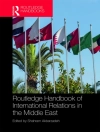What are the critical gaps in thinking about reflexivity and social research?
How is reflexive practice shaped by the contexts and cultures in which researchers work?
How might research practice respond to twin demands of excellence and relevance in the knowledge-based economy?
Thinking reflexively about the inter-relationships between social research and societal practices is all the more important in the so-called knowledge economy.
Developing reflexive practices in social research is not achieved through applying a method. Where and how researchers work is fundamental in shaping the capacities and capabilities to produce research as content and context lie in a dynamic interaction.
This book not only provides a history of reflexive thought, but its consequences for the practice of social research and an understanding of the contexts in which it is produced.
It provides critical insights into the implications of reflexivity through a discussion of positioning, belonging and degrees of epistemic permeability in disciplines. It is also highly innovative in its suggestions for ways forward in research practice through the introduction of active intermediaries.
Overall, the book offers an exciting new position on reflexive research that will generate much debate through its successful achievement of two difficult feats: providing essential reading for orientations on reflexivity and social research in the twenty-first century and making a landmark contribution to thinking and practice in the field.
Social Research and Reflexivity is suitable for advanced undergraduates, postgraduates and social researchers in general across a number of disciplines including geography, social research, management and organizations; economics, urban studies, sociology, social policy, anthropology and politics, as well as science and technology studies.
Cuprins
Introduction: Motivations for a Contribution
PART ONE: CONTENT
Commitment, Criteria and Change
Mediation and Research
Representation in Question?
PART TWO: CONSEQUENCES
Reflexive Practice
Positioning and Belonging
PART THREE: CONTEXT
The Political Economy of Knowledge: Relevance, Excellence and Reflexivity
Universities as Research Sites
Cultures of Research Production
A Way forward: Active Intermediaries
Despre autor
Professor Beth Perry is Professorial Fellow in the Urban Institute, University of Sheffield. Beth joined the Urban Institute in September 2016, following her appointment as a Professorial Fellow in the Faculty of Social Sciences. Since 2010 she has been the UK Programme Lead for the Mistra Urban Futures Centre, with headquarters in Gothenburg, Sweden and sits on the International Board. Beth’s research focuses on critically interrogating and developing pathways to more just sustainable urban futures. She focusses on urban governance, transformation and the roles of universities, with an emphasis on socio-environmental and socio-cultural transitions. She has written widely on these issues and is currently working with Prof Tim May at the Sheffield Methods Institute on two co-authored monographs on reflexive social scientific knowledge production and the changing relationships between cities and knowledge. She is working with Tim on two major ESRC grants as well as the delivery of an international programme of work on Realising Just Cities. Jam and Justice: Co-producing Urban Governance for Social Innovation is a three-year project funded by the ESRC Urban Transformations programme, with partners at the Greater Manchester Centre for Voluntary Organisation and the Universities of Manchester and Birmingham. Whose Knowledge Matters? Competing and Contesting Knowledge Claims in 21st Century Cities is a collaboration between the University of Sheffield and the University of Twente in the Netherlands funded by the Open Research Area initiative and focussed on citizen knowledges in sustainable urban development projects. Beth leads a team of researchers at the Urban Institute working across these projects.












